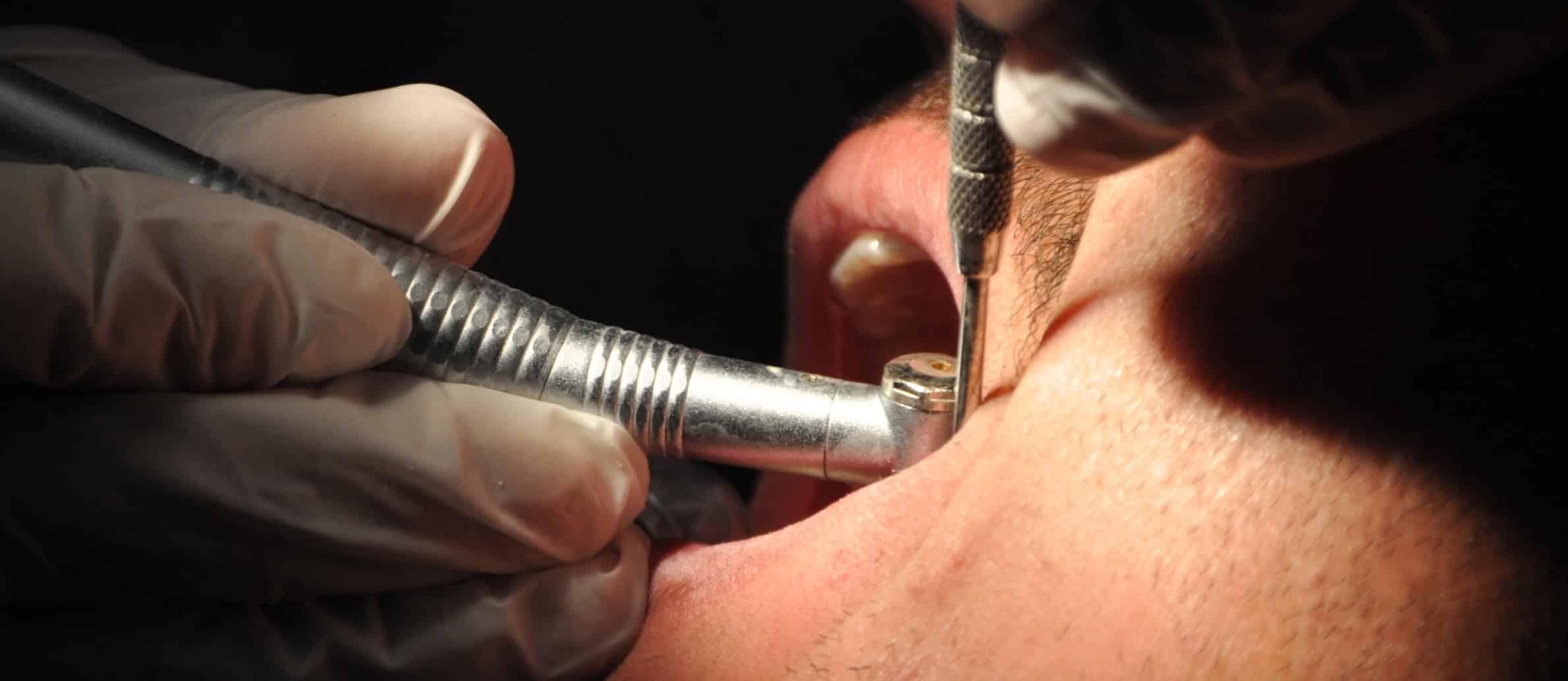A diet high in saturated fat, which can clog our arteries and lead to inflammation, is considered a key underlying causal factor for periodontal diseases like gingivitis. This may explain why chronic gum disease is associated with sexual dysfunction. By looking in your mouth your dentist may find out more about you than you realize!
We know impotence can be reversed with a more plant-based diet; what about periodontal disease? A new study I feature in my 2-min video Plant-Based Diets: Oral Health found that higher intake of high-fiber foods, especially fruits, may at least slow periodontal disease progression. A healthy diet may also protect the sexual function of women.
So what is a safe intake for cholesterol and saturated fat? See my video Trans Fat, Saturated Fat, and Cholesterol: Tolerable Upper Intake of Zero.
For oral cancer it’s a no-brainer. According to the latest review in the journal of the American Dental Association highlighted in my video, “Evidence supports a recommendation of a diet rich in fresh fruits and vegetables as part of a whole-foods, plant-based diet.”
The foods found most protective include raw and green/leafy vegetables, tomatoes, citrus, and carrots. Citrus fruits are acidic, though. Fine, less oral cancer, but what about the health of the teeth themselves? Might eating lots of sour fruit erode our enamel?
Early case reports that raised red flags involved unusual circumstances like sucking on lemon wedges. See my video Plant-Based Diets: Dental Health for pictures of what happens when you give your preschool child a banana to suck on as a pacifier or juice 18 oranges a day for over a decade (if you dare!).
The conventional wisdom has been that fruit juice may be bad for our teeth, but whole fruit is fine. This was challenged recently. The ability of fruits and their juices to erode enamel appears to be similar. For the chart that compares grapes to grape juice, carrots to carrot juice, oranges to orange juice, apples to apple juice, and tomatoes to tomato juice, click here.
Now fruits and fruit juices weren’t as bad as soda—Diet Coke takes the title for softening teeth the quickest. But it was a surprise that fruits and their juices had comparable effects. The Dental Association put an interesting spin on it: If eating fruits and vegetables whole has the same demineralizing effect as juice, they argued, then hey, maybe fruit juice is not so bad at all! Of course the glass-half-empty interpretation of fruit being as erosive as juice may be that fruit is worse than we thought for our enamel.
Indeed, the latest research on whether the consumption of fruit is cavity-causing found that the frequency of fruit consumption was associated with higher odds of cavities, though they acknowledge that the role of fruit sugars in initiating dental cavities in humans has long been a subject of debate.
Those eating plant-based diets may have less disease of the tissues surrounding the teeth, but if people who eat a lot of fruit get more cavities, then what about the health of the teeth themselves? Though vegetarians and vegans don’t have more cavities than those eating more conventional diets, they may have greater signs of acid erosion on their teeth (as documented in two studies I run through in my dental health video). So what should people do?
There are a number of foods and drinks that have the potential to cause dental erosion, both unhealthy foods like soda and sour candy, as well as healthy foods like fresh fruit and certain herbal teas. In the biggest study to date, consuming citrus fruits more than twice a day was associated with 37 times greater odds of dental erosion compared to those who consumed citrus fruits less often. It also appears risky to consume apple cider vinegar or sports drinks once a week or more and soft drinks daily. These habits resulted in the odds of erosion being ten, four, and four times greater, respectively, than when the habit did not exist.
How can we get the benefits of healthy foods like citrus while minimizing the risks of dental erosion? The most important thing is that we should never brush right after we eat sour fruit. We should wait at least 30 minutes. Acid softens our enamel such that if we brush right away we can actually brush away some of our teeth!
I profile a study where they had some folks swish an acidic solution (Diet Sprite) and then brush immediately after, or 10, 20, 30 or 60 minutes after. Drinking soda without brushing at all can lead to some enamel loss, but we may double or triple that damage if we brush our teeth when they’re in the acidified softened state. The researchers suggest we should wait at least 30 minutes and probably a whole hour afterwards to be safe. The simple solution is that after eating anything sour we should rinse our mouth with water to help neutralize the acid.
So should we avoid healthy foods like citrus? No! We just need to rinse.
What’s so great about citrus? See for example:
- Which Fruit Fights Cancer Better?
- Preventing Strokes with Diet
- Fat Burning Via Flavonoids,
- Boosting Heart Nerve Control
More on oral health in Diet & Lichen Planus.
Anything else people eating healthy diets should be aware of? The most important consideration is vitamin B12. See my blog posts Vitamin B12: how much, how often? and Vegan B12 deficiency: putting it into perspective.
-Michael Greger, M.D.
PS: If you haven’t yet, you can subscribe to my videos for free by clicking here and watch my full 2012 – 2015 presentations Uprooting the Leading Causes of Death, More than an Apple a Day, From Table to Able, and Food as Medicine.
